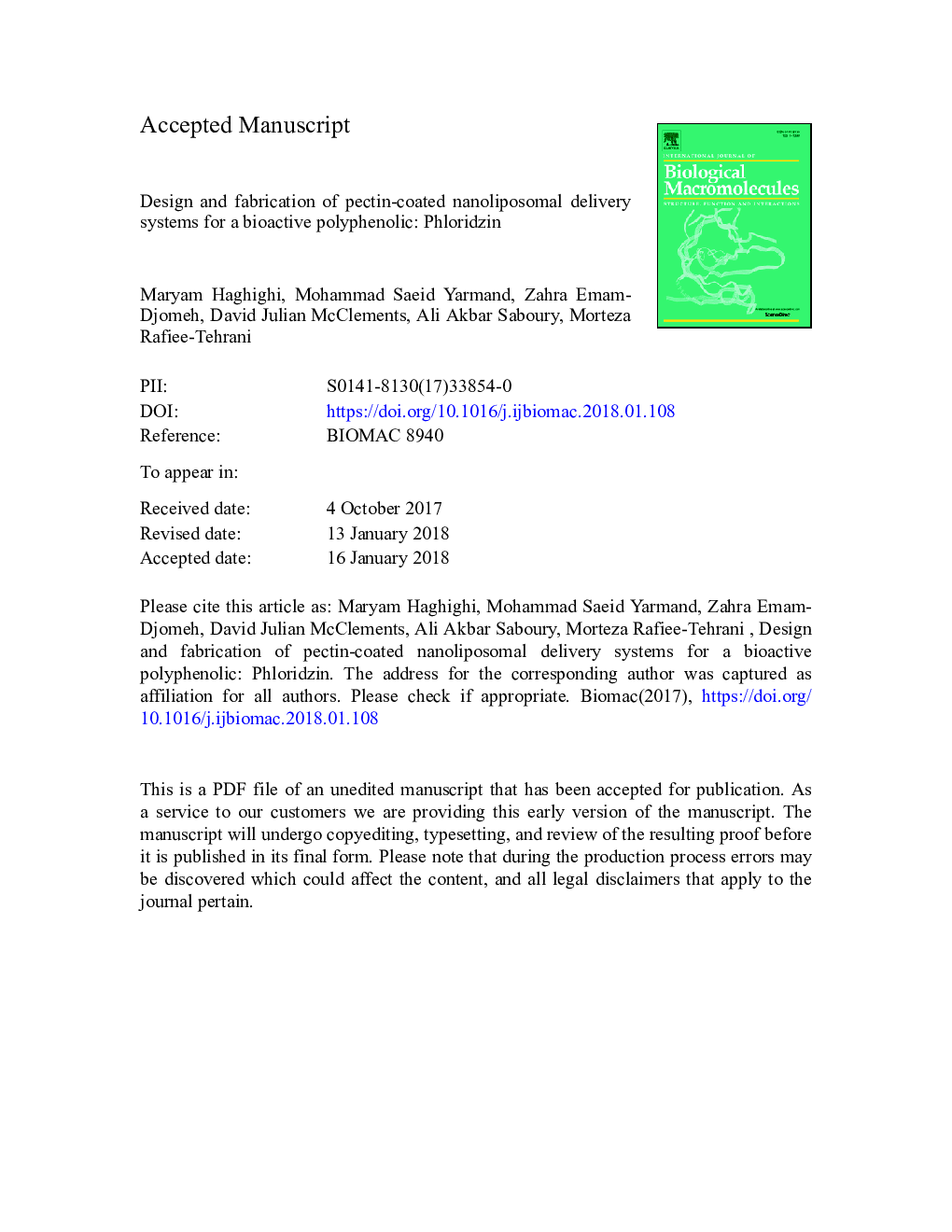| Article ID | Journal | Published Year | Pages | File Type |
|---|---|---|---|---|
| 8327726 | International Journal of Biological Macromolecules | 2018 | 33 Pages |
Abstract
Nanostructured colloidal delivery systems comprising of pectin-coated nanoliposomes (pectonanoliposomes) were developed as carriers for a bioactive polyphenolic compound (phloridzin). Phloridzin-loaded nanoliposomes were fabricated using a heating-stirring-sonication method, and coated with low methoxyl pectin using an electrostatic deposition approach. Dynamic light scattering, micro-electrophoresis, atomic force microscopy, and UV-Visible spectroscopy were used to investigate the impact of system composition on the size, charge, morphology and stability as well as immobilization, adsorption and encapsulation efficiencies of the pectonanoliposomes. Response surface methodology was used to optimize the composition of the pectonanoliposomes based on particle size and charge characteristics. Linear, quadratic and interaction effects of 1,2-dioleoyl-3-trimethyl ammonium propane/lecithin, phloridzin/lecithin and pectin/liposome ratios significantly influenced the mean hydrodynamic diameter and/or surface charge of pectonanoliposomes. Second-order polynomial regression models were generated for intensity-weighted particle size and zeta potential of the designed carriers. Topographic and phase contrast images showed that pectonanoliposomes exhibited a range of different morphologies. Coating the nanoliposomes with pectin improved their immobilization and encapsulation efficiencies as well as physical storage stability. Cationic pectonanoliposomes were superior to plain systems regarding long-term stability. Our results suggest that pectonanoliposomes may be suitable delivery systems for polyphenolic nutraceuticals, such as phloridizin, in functional food and pharmaceutical applications.
Related Topics
Life Sciences
Biochemistry, Genetics and Molecular Biology
Biochemistry
Authors
Maryam Haghighi, Mohammad Saeid Yarmand, Zahra Emam-Djomeh, David Julian McClements, Ali Akbar Saboury, Morteza Rafiee-Tehrani,
